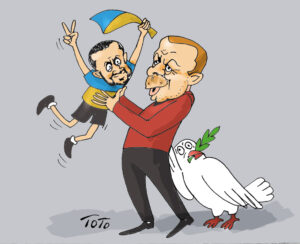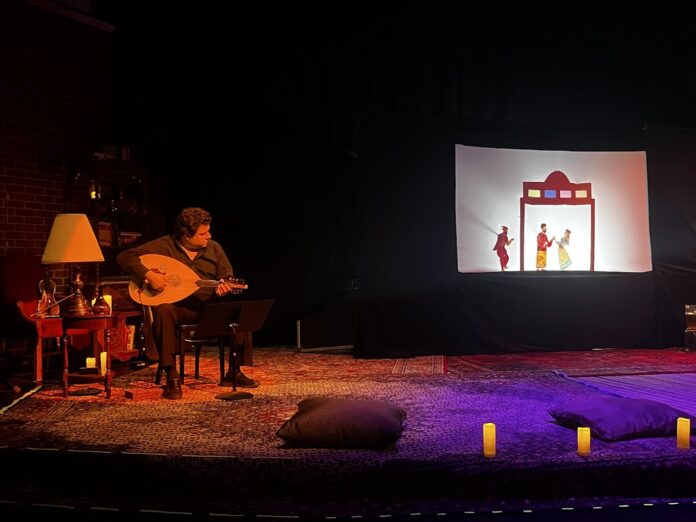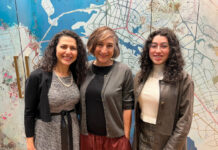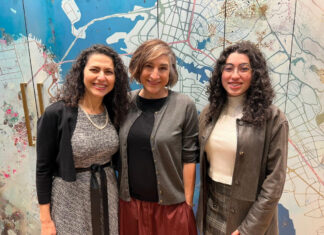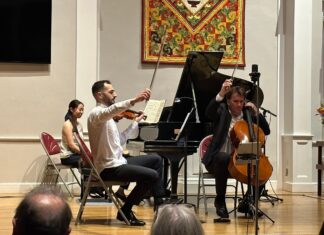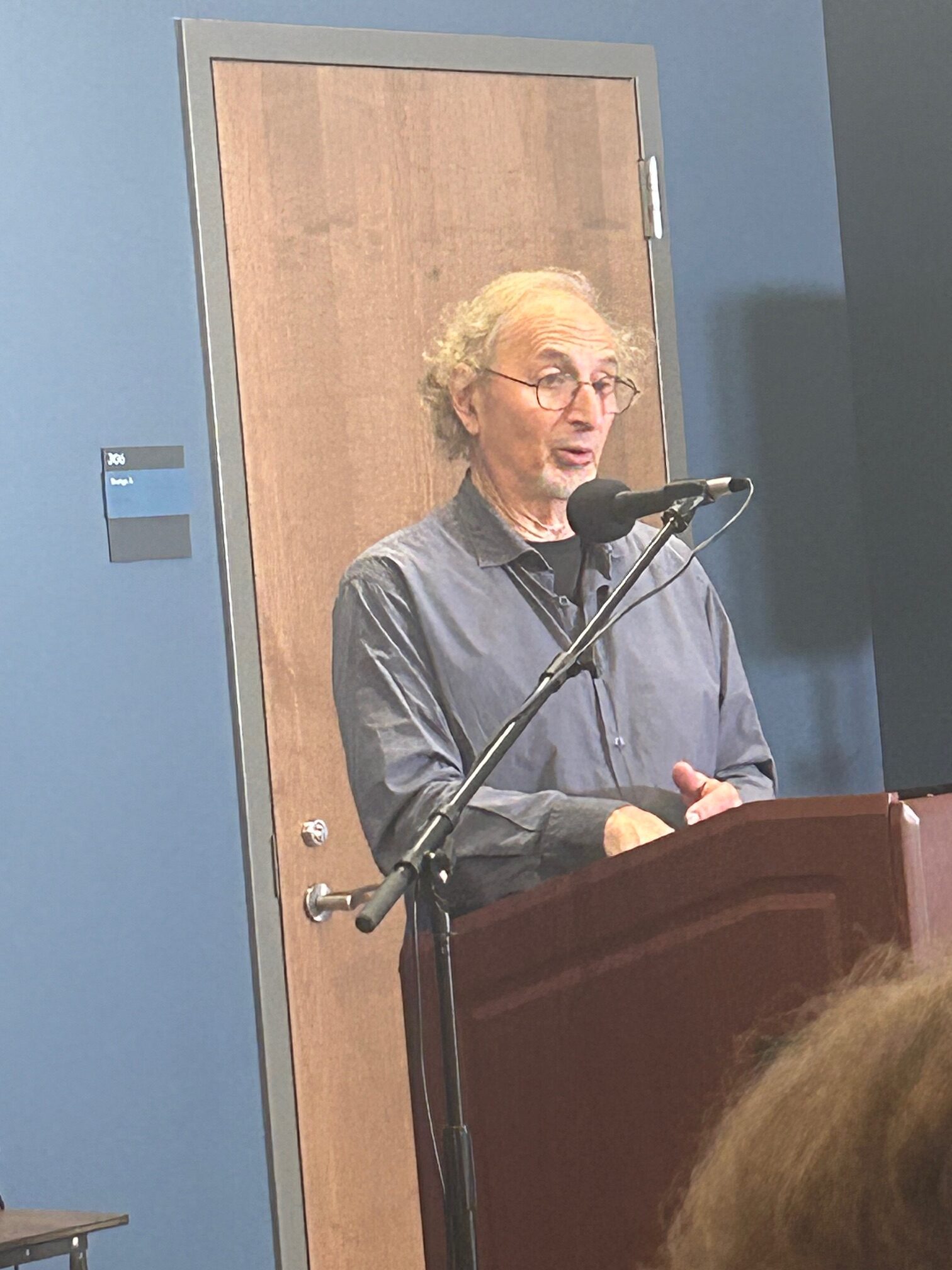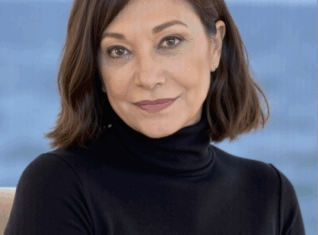By Caitlyn Marentette and Vicken Mouradian
ANN ARBOR, Mich. — The University of Michigan’s Center for Armenian Studies (CAS) welcomed Los Angeles-based theater actress, screenwriter, and storyteller Sona Tatoyan to deliver the 2024 Annual Dr. Berj H. Haidostian Distinguished Lecture on September 5.
Her lecture, titled “Paradox and Liberation: Bones, Puppets, and Psychedelic Journeys in the Play of Identity,” explored her family’s history from the early 20th century to the present, weaving a narrative of perseverance in the aftermath of the Armenian Genocide, the Syrian refugee crisis, and her upbringing in the Armenian diaspora. Held at the University of Michigan Museum of Art, the event drew about 80 attendees, including students, faculty, community members and supporters of the center.
On September 7, Tatoyan and her production team presented a multimedia theatrical performance titled Azad. This project combined personal storytelling, Karagöz shadow puppetry, sound effects, dialogue, and Middle Eastern folk music. Tatoyan was joined by Ayhan Hulagu as puppeteer and Harry Kezelian on the oud. Hulagu is a New York-based actor and founder of the U.S. Karagoz Theatre Company, who has brought Turkish theatre to audiences in over 35 states through performances, workshops, and exhibitions, while also serving as a guest artist at universities such as Harvard, MIT, and UC Berkeley.
Kezelian, a third-generation Armenian-American musician from Metro Detroit, specializes in Anatolian Armenian folk music and liturgical singing, performing for over two decades with the Komitas Choir and his band, the Kef Tones. In this sold-out event, the cast skillfully demonstrated how storytelling can be a vehicle for healing and personal transformation.
During her one-week residency at U-M, Tatoyan visited the Arab American National Museum in Dearborn, where she was hosted by Director Diana Abouali and Curator of Education Dave Serio. She also participated in two class visits. In Prof. Sosy Mishoyan’s Intermediate Western Armenian language course, Tatoyan discussed the complexities of a mixed Armenian-American identity. She then visited Dr. Renee Randal’s Comparative Literature course, “Trauma and Healing in the Global South,” where discussions centered on evolving theories of trauma, particularly in the context of generational trauma experienced by genocide survivors.
